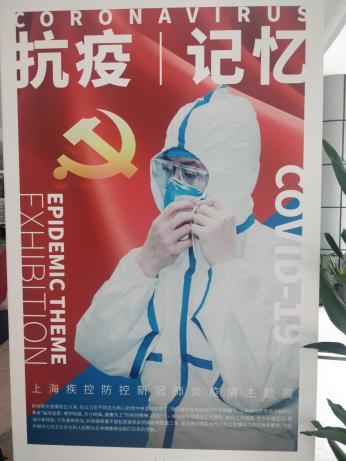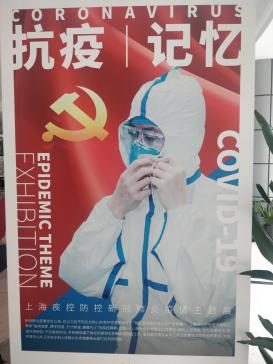Many months into the 2020 global COVID-19 (SARS-CoV-2) pandemic, the exact origin of the virus remains unknown. Although it is commonly agreed that the virus was first identified as being linked to a seafood market in Wuhan City at the end of 2019, there is still a lot of controversy regarding how hospitals, health authorities, and other government agencies dealt with the first cases on the ground and the disease’s unfolding impact. The Chinese central government has rejected a series of accusations about the source of the virus—including alleged traces to a virology laboratory in Wuhan—and participated in a cover-up at the outbreak’s early stage.

Poster advertising an exhibition at the Shanghai Center for Disease Control on epidemics including Covid-19. Source: Tom Hancock @hancocktom, 2020.
Chinese scientists played important roles in uncovering some of the mysteries surrounding early cases of COVID-19, and as transmitters of information for the domestic public and their global peers. While Chinese authorities only confirmed the human-to-human transmission of Coronavirus on January 20, 2020, doctors, immunologists, and virologists had widely documented anomalies and had already sent warnings in late December 2019. Their data, published in online research repositories and international science publications, indirectly challenged the official data released by the National Health Commission and caused an uproar on the internet in China. At the same time that netizens lamented the suppression of information about the epidemic and the untrustworthy conduct of government authorities, they engaged in efforts to elevate some Chinese scientists to public hero status.
This study will look more closely at these prominent Chinese scientists and their accessible work, as well as at the public coverage of their status and personae—with a particular interest in the image they created for themselves and that was created of them by the political authorities and the public. What does this framing reveal about the official and popular understanding of functional differentiation of science and politics in China today? And how do these scientists navigate expectations to engage in international knowledge-sharing and collaboration alongside their domestic roles?

